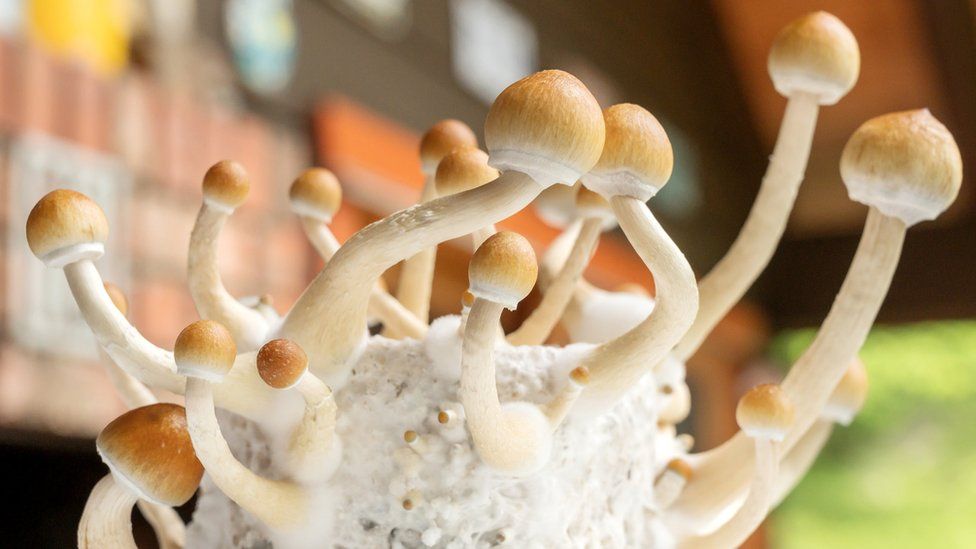The use of psychedelics to treat some mental health conditions has been made legal for the first time ever in Australia.
Post-traumatic stress disorder patients can now be prescribed MDMA by licensed psychiatrists, and some types of depression patients can be prescribed magic mushrooms.
Numerous scientists and mental health professionals have praised the contentious decision as a paradigm-shifting development.
Some contend that the decision was hurried and shouldn't have been given too much attention.
A "bad trip," or an unpleasant experience while under the influence of drugs, is still a possibility, according to experts.
Additionally, therapy is not free; according to Australian media, a single course could cost tens of thousands of dollars.
The synthetic drug MDMA, also referred to as ecstasy or the party drug, has hallucinogenic properties. It amplifies the user's energy levels, sensory perceptions, and sense of time.
Due to their naturally occurring active ingredient, psilocybin, magic mushrooms also produce hallucinogenic effects.
The drugs are already legal for use in Israel, Canada, and the US for medical purposes, but only in specific situations or after conducting clinical trials.
The new rules, which took effect in Australia on July 1, allow licensed psychiatrists to prescribe MDMA for PTSD and psilocybin for depression that has not responded to other treatments.
According to Dr. Mike Musker, a mental health researcher at the University of South Australia, use of the psychedelics would be carefully observed rather than simply a case of "take a pill and go away.".
According to him, the move is a "game-changer," and in the case of MDMA, for instance, the patient would probably receive three treatments spaced out over five to eight weeks. A typical treatment would last for eight hours, during which the therapist would remain with the patient.
But patients shouldn't hope for a miracle recovery.
According to Dr. Musker, "I have read about stories where people have had what you might call bad trips, or actually they've re-experienced their trauma, and so we've got to take great caution.".
Although psychedelics undoubtedly had the potential for therapeutic use, according to Professor Susan Rossell of Melbourne's Swinburne University, the move had happened too quickly.
If you examine interventions. You cannot develop a drug as quickly as this has been done for any other type of disease, including cancer or cardiovascular disease, she told AFP.
More studies are required to ascertain the long-term effects of the therapy, according to Prof. Rossell, who is in charge of Australia's largest trial on the effects of psilocybin on depression.
When the Therapeutic Goods Administration (TGA) of Australia reclassified MDMA and psilocybin so they could be used for therapeutic purposes in February, it shocked many in the medical and scientific communities.
It deemed the medications "relatively safe" when administered to patients "with serious mental health conditions" in a "medically-controlled environment.". Otherwise, it is forbidden to use MDMA or psilocybin in Australia.
The TGA acknowledges that there are uncertainties and conflicting evidence, but claims that "there are encouraging signs" that carefully regulated therapeutic drug use may enhance mental health for some individuals and that the "benefits for some patients.". will balance out the dangers.
According to the regulatory body, no products containing MDMA or psilocybin are currently approved. However, because of the reclassification, psychiatrists will be able to legally access and supply some medications that contain them, even if their safety or efficacy has not been established.







